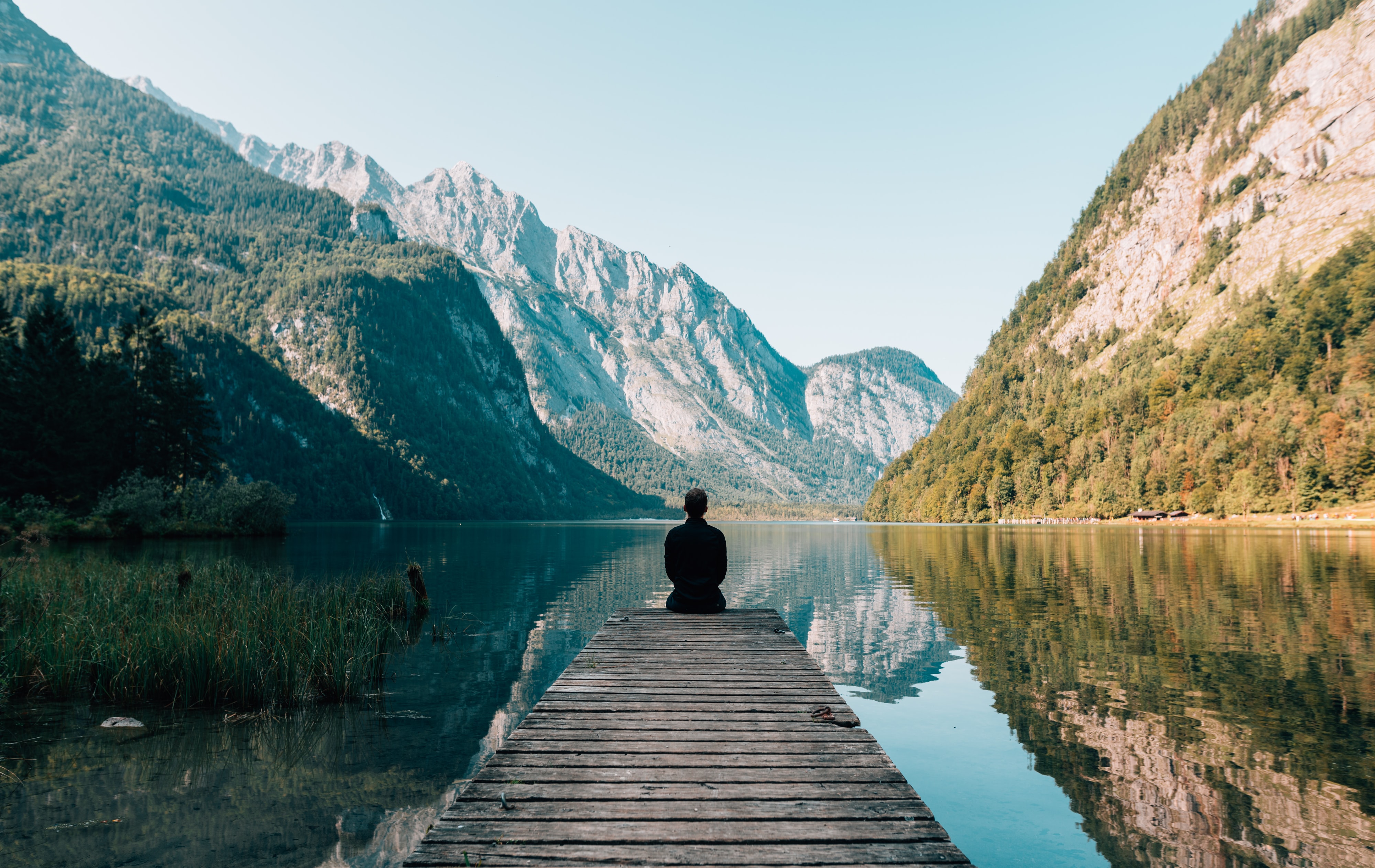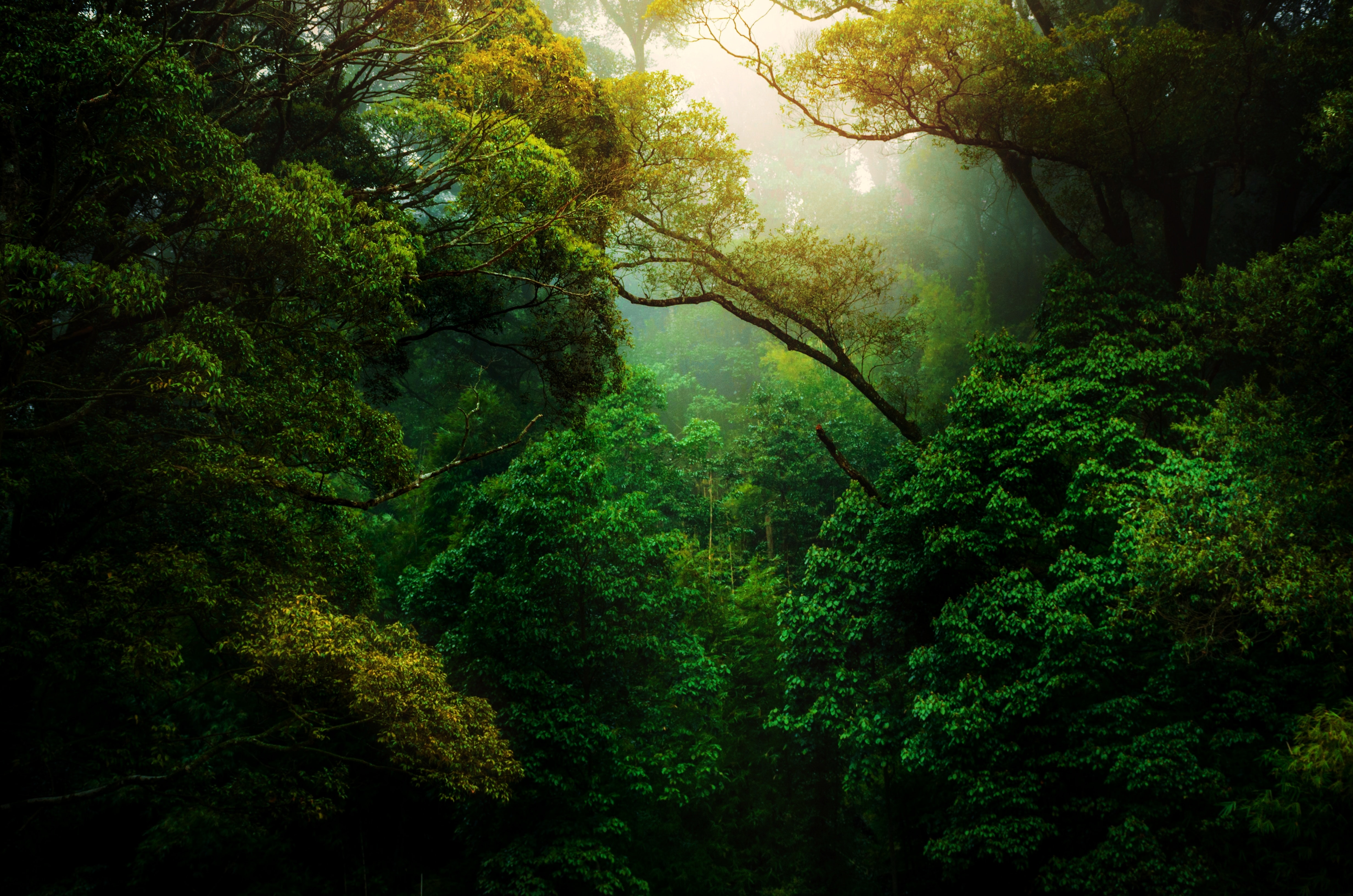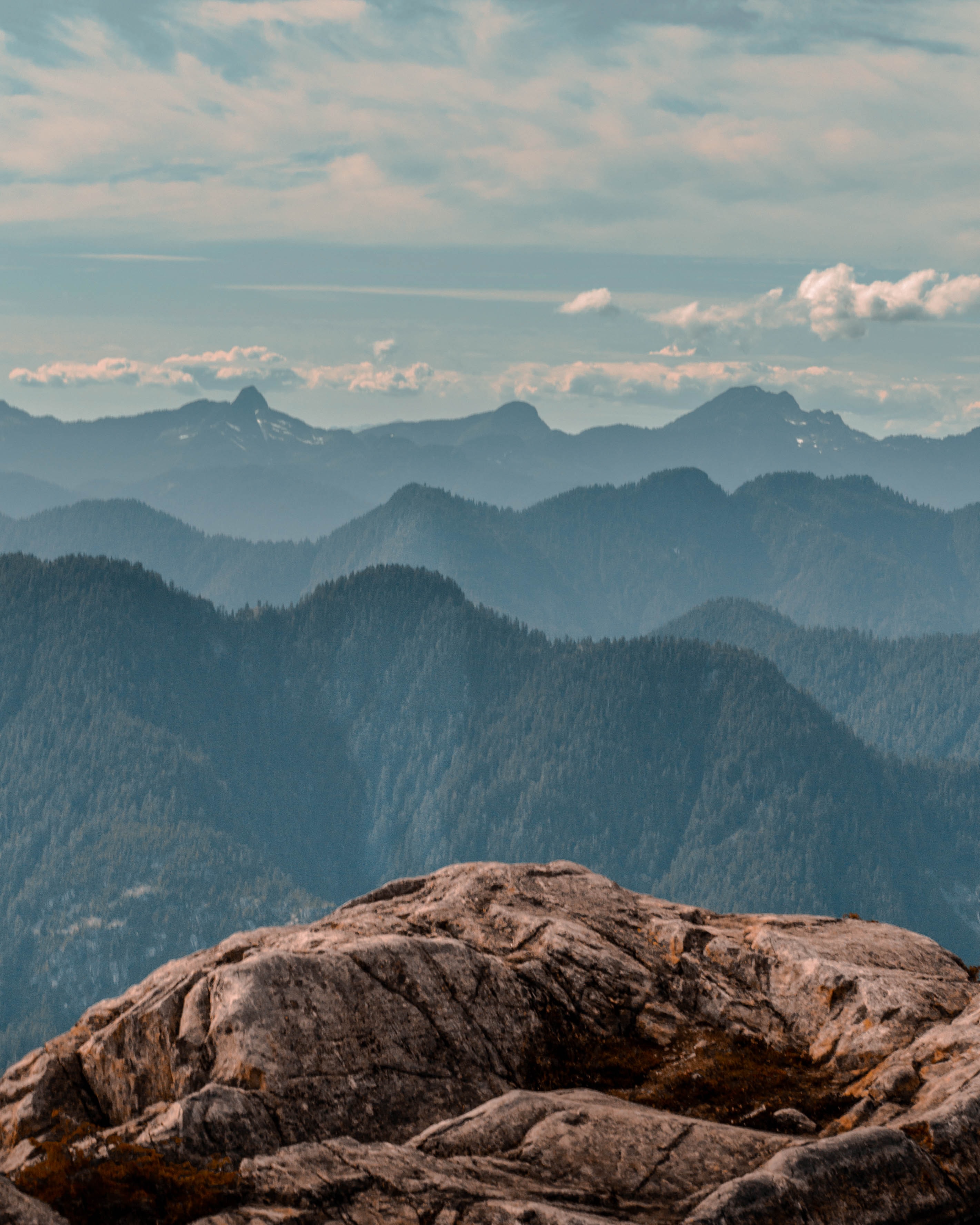If you’ve been feeling stressed these days, I am with you. I toss and turn at night and then wake up just to walk over from my room to the kitchen to get food and then plop myself down in front of my computer to work. Day in and day out like this.
Surrounded by doom and gloom from the news. And uncertainty about what’s all going to happen. It’s getting on my nerves.
Lately, I’ve incorporated going out every morning to work on my garden even if that just means watering the growing plants.
Spring is always an extra pretty time of the year because you get to see the world in a state of growth. Watching the buds on my grape plant growing ever larger, seeing the roses in all their glory open, and smelling the sweet, sweet scent of orange blossoms. What’s not to love?
One great way to decrease your stress, refocus and refresh yourself is to get out into nature. But can there really be such a simple answer? Science says yes. Nature can help us.
In celebration of Earth Day, let’s not only appreciate nature, but also learn how it can give back to us even more. Nature is just that great, isn’t it?!
Science shows us how nature can help us
Now I see the secret of making the best person: it is to grow in the open air and to eat and sleep with the earth
Walt Whitman
According to reviews by Frumkin2 and Van den Berg12, nature appears beneficial to human health.
But what are these benefits of being out in nature? How can nature help us?

De-stress
First, being out in nature can help us de-stress. Whether it’s going outdoors to look at some greenery or going on a hike on a dirt trail, you’ll lower whatever stress level you’re at.
A study conducted in Japan recorded participant’s moods, stress levels, and other psychological measures before and after taking a walk in a forest or an urban center5. They found that it’s not just about exercising, but nature itself that has a beneficial effect on people6.
On most days, I try get some exercise in to help me de-stress and be tired enough at night to fall asleep soundly. However, it seems like nature can also de-stress me in a way that exercise can’t. I think I’ll try to incorporate both more often now because my stress levels…yeah…are not good.
Improve your mood
Have you been crabby lately? That could be due to stress, fatigue, monotonous days, etc. Getting out into nature can help improve your mood.
Along with lowering your stress levels, taking a simple walk out in nature can help improve your mood. In the Japan study mentioned earlier, mood was another factor they recorded. The participants in that study who went on a walk in nature had an improved mood afterward. Perhaps, less stress and a better mood go hand in hand.
Do it for yourself and do it for the people in your life. I’m sure they love being around a good mood version of you just a little bit better.
Revitalize & refresh
Have you heard of attention fatigue?
We are all almost constantly staring at screens these days.
Even when I’m not staring at a screen, soon enough my Apple Watch buzzes me with a notification about something I don’t care about. But even if I didn’t care about what it notified me about, even if I didn’t click on it or go to my phone to open up the news article, my concentration is still broken.
It’s tiring to have your attention pulled in all of these directions. A study by Berman, Jonides, & S. Kaplan showed that being in nature can help with attention restoration7. Perhaps, it’s the calmness of nature that allows us to stop being in frenzy.
In nature, you can open your attention and widen your focus. Hopefully, you won’t have cellular reception on the trail or you can temporarily turn off your phone so you can just be present for the time that you are out there.
Increase creativity
Tied to attention restoration is increased creativity. And yes, you guessed it, being out in nature helps here, too.
When our minds are well rested, more engaged, less frustrated, we can solve our problems more creatively6 and come up with more creative ideas. For example, have you been trying to figure out a safe way to see your Grandmother or a better way to solve your company’s problem while you work remotely?
Take a breather out in nature and give your mind a chance to “re-organize” itself. The change-up in scenery will be beneficial and potentially inspirational as well.
Our creativity can receive a boost when we get out into nature. The great thing is that there really is no active action you have to take other than getting out into the world.
After that, it’s just about taking it all in and appreciating nature and this is technically passive.
Be better socially
You may either be really glad you haven’t had to interact with that many people lately or you may be craving social interaction at this point. Either way, spending time in nature can help with your pro-social aspirations8.
Being out in nature can help you be more generous and appreciative toward others, interact more calmly and peacefully in society, and be kinder and understanding in situations with others9.
Having shared nature experiences and being in natural environments with your family or friends can help improve and strengthen those relationships7.
You benefit the world ’round
The reason why we benefit from nature and are so drawn to it might be due to our ancestors having spent most of their lives and generations back living closely with nature.
Only recently have we moved to a more urban style of living. This is called the biophilia hypothesis by Kert and Wilson3,4.
We basically have a connection with nature and when we are in our urban housing, we can lose sight of this relationship.
It’s like seeing a good friend after a long time and come back from that interaction feeling revitalized, inspired, happy, and wondering why you don’t see that friend more often.
You don’t have to go into the wilderness to experience nature
The clearest way into the Universe is through a forest wilderness.
John Muir

Although John Muir here is saying that you need to go through a forest wilderness, it turns out you don’t even have to trek that far out into the wilderness or find some pristine, undisturbed patch of land to truly experience nature and for it to benefit you.
Even urban nature, your city park, can promote pleasant moods1. Take a twenty-minute stroll through an urban park or woodland and it can help relieve stress, according to a Finland study6. But it is nice to get away from too much noise like from cars, sirens, and shouting.
I have noticed that research papers have tended to focus on the visuals of nature, but I think the other senses have a part to play, too. I think the sounds or lack of certain sounds in nature are calming and the woodsy or floral smells are refreshing.
So, with these aspects in mind, you can find your own patch of peaceful nature that is not too far away or difficult to access.
How you can reconnect with nature
We’re all still supposed to social distance during this time so getting out into nature is one of the great activities you can do. Find a wide-open place, somewhere that isn’t too crowded. I live in California so practically every trail is crowded. Yay.
If you have a backyard, consider growing some more plants out there. I’ve been to some pretty small backyards, if you can even call it a backyard, when I’ve visited friend’s places in San Francisco and people have really managed to fix it up with just a few well-placed, potted plants.
Pick succulents if you don’t want to have to do a lot of work. They’re still green and lovely to look at.
I know that “getting out into nature” is not accessible for everyone. I wish that it were. We need more programs in school that allow children to experience nature. Inner-city kids and adults should get to experience nature when they want to.
You start to wonder that if nature has so many benefits on mood, connectivity, and well being that the world would be a better and more peaceful place if we all could enjoy nature more often.
And it has been shown that with exposure to nature there is reduced crime and aggression10,11. What is it about being in nature that makes us calmer, more appreciative?
Maybe nature reminds us there is something bigger than us and the perspective helps us.
Whatever it is that nature helps us with, I hope you get out today or this weekend or more often in general. Happy Earth Day!
I felt my lungs inflate with the onrush of scenery—air, mountains, trees, people. I thought, “This is what it is to be happy.”
Slyvia Plath

Live happier,
Nicole Andrews
Other articles to read:
- Learn to be Happy Through a Happier Mindset
- Getting Your Sleep Matters: Sleep Better, Live Happier
- Motivation: Use it to Succeed in your Endeavors and be Happier
Share this article:
Sign up for my newsletter!
Never miss a new post. I will not share, nor will I sell your information.
Follow me on social
Buy Me A Coffee
If you liked this post and others that I write, consider buying me a cup of coffee!
References
- Nisbet, E. K., & Zelenski, J. M. (2011b). Underestimating nearby nature: Affective forecasting errors obscure the happy path to sustainability. Psychological Science, 22, 1101-1106.Frumkin, H. (2001). Beyond toxicity: Human health and the natural environment. American Journal of Preventive Medicine, 20, 234-240.
- Kellert, S. R. (1997). Kinship to mastery: Biophilia in human evolution and development. Washington, DC: Island Press.
- Capaldi, C. A., Dopko, R. L., & Zelenski, J. M. The relationship between nature connectedness and happiness: a meta-analysis. Frontiers in Psychology. 2014 Sep 08. DOI: 10.3389/fpsyg.2014.00976.
- Lee, J., Tsunetsugu, Y., Takayama, N., Park, B., Li, Q., Song, C., Komatsu, M., Ikei, H., Tyrvainen, L., Kagawa, T., & Miyazaki, Y. Influence of Forest Therapy on Cardiovascular Relaxation in Young Adults. Hindawi Publishing Corporation. Vol. 2014, Article ID 834360. DOI: 10.1155/2014/834360l
- Suttie, Jill. How Nature Can Make You Kinder, Happier, and More Creative. Greater Good Magazine: Mind & Body. 2016 Mar. 2. Retrieved from https://greatergood.berkeley.edu/article/item/how_nature_makes_you_kinder_happier_more_creative.
- Eemeli Hakoköngäs & Riikka Puhakka (2021): Happiness from Nature? Adolescents’ Conceptions of the Relation between Happiness and Nature in Finland, Leisure Sciences, DOI: 10.1080/01490400.2021.1877584.
- Weinstein, N., Przybylski, A. K., & Ryan, R. M. (2009). Can nature make us more caring? Effects of immersion in nature on intrinsic aspirations and generosity. Personality and Social Psychology Bulletin, 35, 1315-1329.
- Nisbet, Elizabeth K. & Zelenski, John M. (2014): Happiness and Feeling Connected: The Distinct Role of Nature Relatedness. Environment and Behavior 2014 46: 3. DOI: 10.1177/0013916512451901.
- Kuo, F. E., & Sullivan, W. C. (2001a). Aggression and violence in the inner city: Effects of environment via mental fatigue. Environment and Behavior, 33, 543-571.
- Kuo, F. E., & Sullivan, W. C. (2001b). Environment and crime in the inner city: Does vegetation reduce crime? Environment and Behavior, 33, 343-367.
- Van den Berg, A. E. (2005). Health impacts of healing environments: A review of evidence for benefits of nature, daylight, fresh air, and quiet in healthcare settings.

13 replies on “How Can Nature Help Us Be Happier and Less Stressed”
Wonderful post! I can absolutely relate to how you are feeling and I agree that time in nature can really help. I love how you refer to nature as “seeing a good friend after a long time.” That describes it perfectly! Thanks for sharing this!
Thank you! Nature has that way of revitalizing and refreshing you, I find.
I completely agree with these! Nature can be such a great way to recharge and connect with yourself! Even a walk can help so much, thanks for sharing x
Thank you for reading! You’re right – it’s a great way to recharge and get to know yourself.
Love this post, Nicole! I love going for long camping trips in the Summer. Thank you for sharing this xx
Lynn | https://www.lynnmumbingmejia.com
Thank you for reading this! Camping during the summer is so fun!
Thank you for sharing this post. Nature is such a gorgeous place and I think more people need to spend time in it. I have really enjoyed going for walks in lockdown, especially now that it’s lighter and warmer. Nature is very beneficial to use all! Em x
Thank you for reading my post! I’m glad you’re able to get out on walks during this time. I find I look forward to my daily walks too (I sound like a puppy haha).
[…] (Related post: How Can Nature Help Us Be Happier and Less Stressed) […]
Amazing! I know nothing about traveling all over the country, what a wonderful looking place to explore.
Visit website: “https://www.ridetransferdirect.com/”.
Thank you for reading! You don’t have to go far to get out into nature and exploring can even happen in your own backyard. I’m glad you enjoyed the post!
[…] How Can Nature Help Us Be Happier and Less Stressed […]
[…] Get out into nature and take a hike (you don’t have to be an outdoors expert or in super fit shape) with a friend or family member. […]